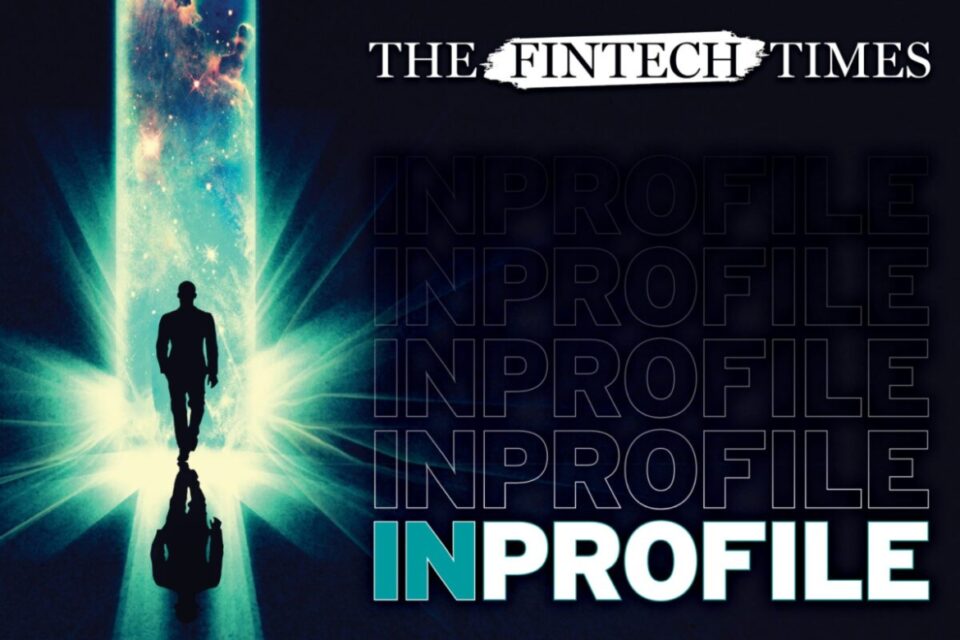This month’s In Profile breaks the the usual mould, as we hear from two executives from the emerging Banking as a Service (BaaS) sector: Andy Mielczarek, Founder and CEO of Chetwood Financial, a digital bank focused on distinct customer segments that are underserved by the market, creating innovative products to meet their needs, and Ammar Akhtar, CEO of Yobota, a cloud-native core banking platform built on open source technologies for maximum flexibility and scalability.
Yobota recently announced a new partnership with Chetwood Financial to enter the BaaS sector, allowing the cloud-native banking platform more flexibility, making the customer experience a bigger priority and easing operational concerns. Yobota’s BaaS offering reduces time to market for those without a banking license and infrastructure, allowing businesses to configure bespoke and scalable financial products.
However, BaaS may still be a new concept to some. Clarifying the uncertainty surrounding it, Mielczarek and Akhtar delve into the what, the why and the how of the service:


For those of us who aren’t quite up to date on the latest industry trends, what is BaaS?
Ammar: BaaS describes a business model in which new companies with innovative ideas for financial products can avoid the delay, expense and, quite frankly, hassle, of applying for their own banking licence, by using the licence of an existing bank to launch their products to the market in a way which is still compliant with all the relevant regulations. While there are many companies talking about BaaS, it’s really important to note that true BaaS is in the B – you need to provide the banking licence and the balance sheet.
And Andy, why did Chetwood decide to offer it?
Andy: We’re really proud to be opening our banking systems to third parties who want to create better end-to-end journeys for their customers. Together with experienced partners like Yobota, we’re able to handle both the regulatory and technological complexities involved in helping brands embed financial services directly into their propositions.
It sounds like there are a lot of positives, so who is it for?
Andy: We’ve identified three principal groups of businesses who could most benefit from BaaS:
- Financial services businesses who don’t currently offer banking products – or, at least, not the full suite of banking products their customers might want. Insurers and wealth managers, for example, have built relationships with their clients in their respective product areas, but can’t offer loans, credit cards or deposit accounts, as they don’t have the required regulatory permissions. These businesses have all the key ingredients to originate a healthy flow of product business – a strong brand, solid customer relationships, well developed contact channels and customer relationship management systems – but they don’t have the means to manufacture the products. Similarly, some financial services firms may be capital constrained and therefore not able to self-fund the growth of a lending portfolio. For these businesses, BaaS provides a route to offer a range of credit-based products, fully funded and capital backed. What’s more, BaaS providers who are licensed banks themselves will be able to generate funding at retail deposit rates, rather than having to use wholesale funding, which comes at a considerably higher cost.
- Organisations outside of financial services which have large customer, member, or fan bases, where the brand offers access into financial services. Many sports clubs, trade unions, and professional societies have the brand strength and trust to support offers of branded financial services products from select and trusted partners. We’ve seen this model most commonly in the credit card market with affinity programmes, which gives us a sense of the value opportunity that can be addressed by offering BaaS to a broader industry set.
- A third area is where banking products are required as a secondary element to the primary product sale. This type of offering is already common across the retail, automotive and telecoms industries, all of which offer financing alongside high value purchases, for example a lease on a car or a loan for a sofa. Buy now pay later (BNPL) is becoming an increasingly significant element in the retail proposition, and BaaS offers proven, professional management of this element, rather than it being managed on the side.
How does it work in practice for one of those businesses looking to get involved?
Ammar: A BaaS client can get to market using Chetwood’s regulatory permissions and, if necessary, existing operations capabilities, all working on top of Yobota’s super flexible core banking platform. Clients can develop a proposition perfectly suited to their target customers and future plans, and apply their own bespoke customer experience on top, or use existing templates from Chetwood. All this is supported through the native multibrand capabilities Yobota offers, along with our highly expressive APIs, without the hassle of integrating an ecosystem from scratch.
What are the benefits of BaaS to the financial industry?
Andy: The benefits to the bank or financial services firm are fairly obvious: they can launch new financial products to the market without the need for their own banking licence, or even balance sheet. Not only that, but they can work with Chetwood to access their balance sheet and use their capital to issue loans. This means that even if they have a really specific, niche product in mind, the cost of entry to the marketplace is dramatically reduced, so an idea that might not have been worth pursuing before, suddenly is. This isn’t the only saving of course, our partnership with Yobota means they can access all the third party integrations they need, right off the bat. It’s easy to underestimate just how much work that saves compared to handling each and every integration personally.
And what does it mean for the customer?
Ammar: Well this is where it gets even more exciting. The implications for the customer are huge, firstly because it means it’s much easier for new providers to enter the market, forcing legacy banks to be more competitive with their standard product ranges, and pushing them to advance more quickly than they otherwise might. But the most important thing for me is that it means a really straightforward route to market for these companies with cool ideas for products that will genuinely help people do more with their money. The ability to enable these companies to address financial inequality through human-centric product development is what makes this all worthwhile.
What sort of products are we talking about?
Andy: Well, a great example of this is Chetwood’s LiveLend product. It allows people with lower credit ratings to access the finance they need, without penalising them with heavy interest rates for the life of the loan. By dynamically reducing their interest rate as their credit score improves, people can actively improve their financial situation, whether they’re working to reduce debt, or saving for the future. So BaaS customers can either choose to resell Chetwood’s existing financial products for an even quicker route to market, or with a whitelabel solution they are really only limited by their imagination, as Yobota’s platform can flex to support almost anything they can think of.
How long does it take to get started?
Ammar: Naturally it varies depending on the specific requirements and complexity of the product offering, but as an example, Fronted came to us with a novel idea for lending in the rental deposit space. They wanted to provide short term loans to people who couldn’t afford the overhead of moving rental homes, which is another really great thing for people who are, say, trying to move out of home for the first time, or need to leave a difficult domestic situation. The flexibility of our platform meant we were actually able to get them fully production ready in under six months, and standard available products can actually be live in just a few weeks.
Andy: For BaaS solutions specifically, if they take the reseller route, using Chetwood’s existing product portfolio, this is a very straightforward integration onto the distribution site, and can be up and running in no time at all.
Ammar: For a whitelabel solution, we’d just need to spend a couple of weeks truly understanding the exact requirements of the proposed products, and making sure they were fully supported by the system prior to go-live.



